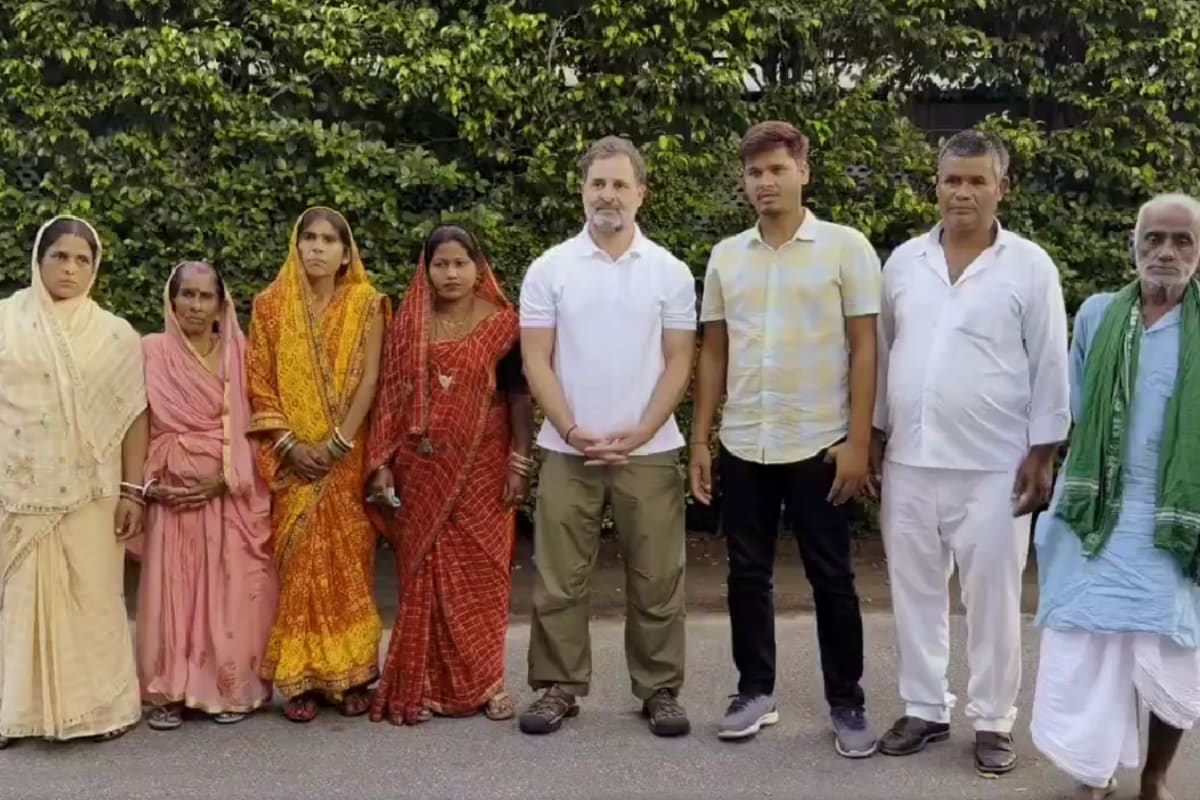

Rahul Gandhi has ignited a fresh controversy surrounding the Election Commission of India (EC) and the electoral process in Bihar, after meeting with seven individuals who claim to have been wrongly declared "dead" in the state's voter rolls. The Congress leader hosted the group for tea at his residence in New Delhi on Wednesday, August 13, 2025, and afterwards took to social media to express his astonishment at the situation.
Gandhi posted on X (formerly Twitter), "There have been many interesting experiences in life, but I never got the chance to have tea with 'dead people'. For this unique experience, thank you Election Commission!". He also shared a video of his interaction with the voters, where he questioned them about their experiences and how they discovered their names had been removed from the electoral rolls.
The seven individuals who met with Gandhi hail from Raghopur, a constituency represented by Rashtriya Janata Dal (RJD) leader Tejashwi Yadav. They are among the 65 lakh voters whose names were allegedly removed from the electoral rolls following the Election Commission's Special Intensive Revision (SIR). According to the "dead" voters, they only found out after the poll panel released a draft list of excluded names. They claim that despite possessing proof of their existence and having completed the paperwork for re-verification, their names were still removed.
The Congress party has characterized the removal of these voters as "political disenfranchisement in plain sight". Gandhi himself has alleged a systematic issue of "voter subtraction" in Bihar ahead of the Assembly polls, further claiming that this follows a pattern where 70 Lok Sabha seats were manipulated. He has also referred to the Election Commission as "atom bombs," accusing them of bias.
The Election Commission has defended its actions, stating that the Special Intensive Revision was necessary to remove the names of deceased, migrated, and duplicate voters from the electoral rolls. The EC also claims that it has not received formal complaints from political parties regarding the voter roll revisions, though it confirmed receiving submissions from individual electors. However, opposition parties and booth-level agents have disputed this claim, alleging that they have submitted objections but have not received adequate responses.
The Supreme Court has weighed in on the matter, upholding the Election Commission's authority to conduct the Special Intensive Revision. The court emphasized that electoral rolls cannot remain static and must be revised to maintain accuracy. However, the court also stressed the importance of ensuring that no eligible voters are wrongly excluded from the rolls.
The controversy surrounding the deletion of voters' names in Bihar has escalated into a major political battle, with the Congress party and other opposition groups accusing the Election Commission of bias and demanding greater transparency in the electoral process. Rahul Gandhi's meeting with the "dead" voters has further amplified these concerns and intensified the scrutiny on the Election Commission's handling of the voter roll revision in Bihar.